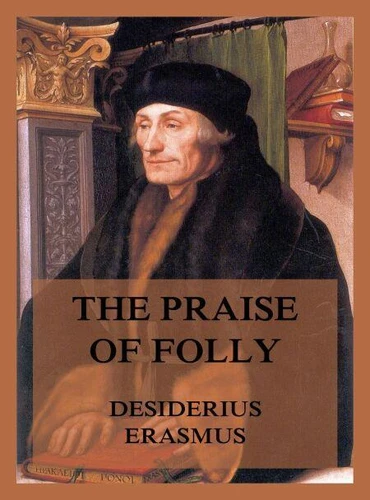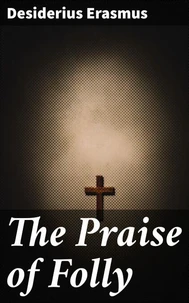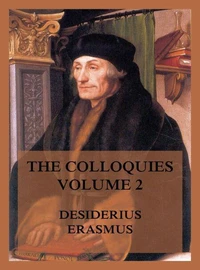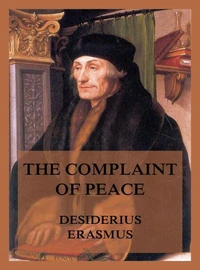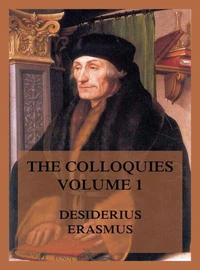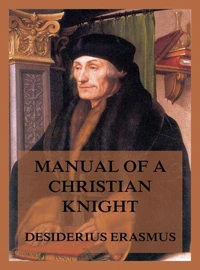The Praise of Folly
Par : ,Formats :
Disponible dans votre compte client Decitre ou Furet du Nord dès validation de votre commande. Le format ePub est :
- Compatible avec une lecture sur My Vivlio (smartphone, tablette, ordinateur)
- Compatible avec une lecture sur liseuses Vivlio
- Pour les liseuses autres que Vivlio, vous devez utiliser le logiciel Adobe Digital Edition. Non compatible avec la lecture sur les liseuses Kindle, Remarkable et Sony
 , qui est-ce ?
, qui est-ce ?Notre partenaire de plateforme de lecture numérique où vous retrouverez l'ensemble de vos ebooks gratuitement
Pour en savoir plus sur nos ebooks, consultez notre aide en ligne ici
- Nombre de pages160
- FormatePub
- ISBN978-3-8496-5382-8
- EAN9783849653828
- Date de parution31/10/2019
- Protection num.Digital Watermarking
- Taille428 Ko
- Infos supplémentairesepub
- ÉditeurJAZZYBEE VERLAG
Résumé
Erasmus reached England after a stay in Italy early in the summer of 1510. Soon afterwards, in Thomas More's house at Bucklersbury, he rapidly wrote his famous satire, the Encomium Moriae, or "Praise of Folly, " in which Folly celebrates her own praises as the great source of human pleasures. He had been meditating this piece on the long journey from Rome; it is a kaleidoscope of his experiences in Italy, and of earlier memories.
As to the title, Moria, the Greek word for "folly, " was a playful allusion, of course, to the name of his wise and witty host. This "Praise of Folly" is a satire, not only in the modern but in the original sense of that word, -a medley. All classes, all callings, are sportively viewed on the weak side. But in relation to the author's own life and times, the most important topics are the various abuses in the Church, the pedantries of the school-men, and the selfish wars of kings.
If this eloquent Folly, as Erasmus presents her, most often wears the mocking smile of Lucian or Voltaire, there are moments also when she wields the terrible lash of Juvenal or of Swift. The popularity of the satire, throughout Europe, was boundless. The mask of jest which it wore was its safeguard; how undignified, how absurd it would have been for a Pope or a King to care what was said by Folly! And, just for that reason, the Encomium Moriae must be reckoned among the forces which prepared the Reformation.
As to the title, Moria, the Greek word for "folly, " was a playful allusion, of course, to the name of his wise and witty host. This "Praise of Folly" is a satire, not only in the modern but in the original sense of that word, -a medley. All classes, all callings, are sportively viewed on the weak side. But in relation to the author's own life and times, the most important topics are the various abuses in the Church, the pedantries of the school-men, and the selfish wars of kings.
If this eloquent Folly, as Erasmus presents her, most often wears the mocking smile of Lucian or Voltaire, there are moments also when she wields the terrible lash of Juvenal or of Swift. The popularity of the satire, throughout Europe, was boundless. The mask of jest which it wore was its safeguard; how undignified, how absurd it would have been for a Pope or a King to care what was said by Folly! And, just for that reason, the Encomium Moriae must be reckoned among the forces which prepared the Reformation.
Erasmus reached England after a stay in Italy early in the summer of 1510. Soon afterwards, in Thomas More's house at Bucklersbury, he rapidly wrote his famous satire, the Encomium Moriae, or "Praise of Folly, " in which Folly celebrates her own praises as the great source of human pleasures. He had been meditating this piece on the long journey from Rome; it is a kaleidoscope of his experiences in Italy, and of earlier memories.
As to the title, Moria, the Greek word for "folly, " was a playful allusion, of course, to the name of his wise and witty host. This "Praise of Folly" is a satire, not only in the modern but in the original sense of that word, -a medley. All classes, all callings, are sportively viewed on the weak side. But in relation to the author's own life and times, the most important topics are the various abuses in the Church, the pedantries of the school-men, and the selfish wars of kings.
If this eloquent Folly, as Erasmus presents her, most often wears the mocking smile of Lucian or Voltaire, there are moments also when she wields the terrible lash of Juvenal or of Swift. The popularity of the satire, throughout Europe, was boundless. The mask of jest which it wore was its safeguard; how undignified, how absurd it would have been for a Pope or a King to care what was said by Folly! And, just for that reason, the Encomium Moriae must be reckoned among the forces which prepared the Reformation.
As to the title, Moria, the Greek word for "folly, " was a playful allusion, of course, to the name of his wise and witty host. This "Praise of Folly" is a satire, not only in the modern but in the original sense of that word, -a medley. All classes, all callings, are sportively viewed on the weak side. But in relation to the author's own life and times, the most important topics are the various abuses in the Church, the pedantries of the school-men, and the selfish wars of kings.
If this eloquent Folly, as Erasmus presents her, most often wears the mocking smile of Lucian or Voltaire, there are moments also when she wields the terrible lash of Juvenal or of Swift. The popularity of the satire, throughout Europe, was boundless. The mask of jest which it wore was its safeguard; how undignified, how absurd it would have been for a Pope or a King to care what was said by Folly! And, just for that reason, the Encomium Moriae must be reckoned among the forces which prepared the Reformation.

